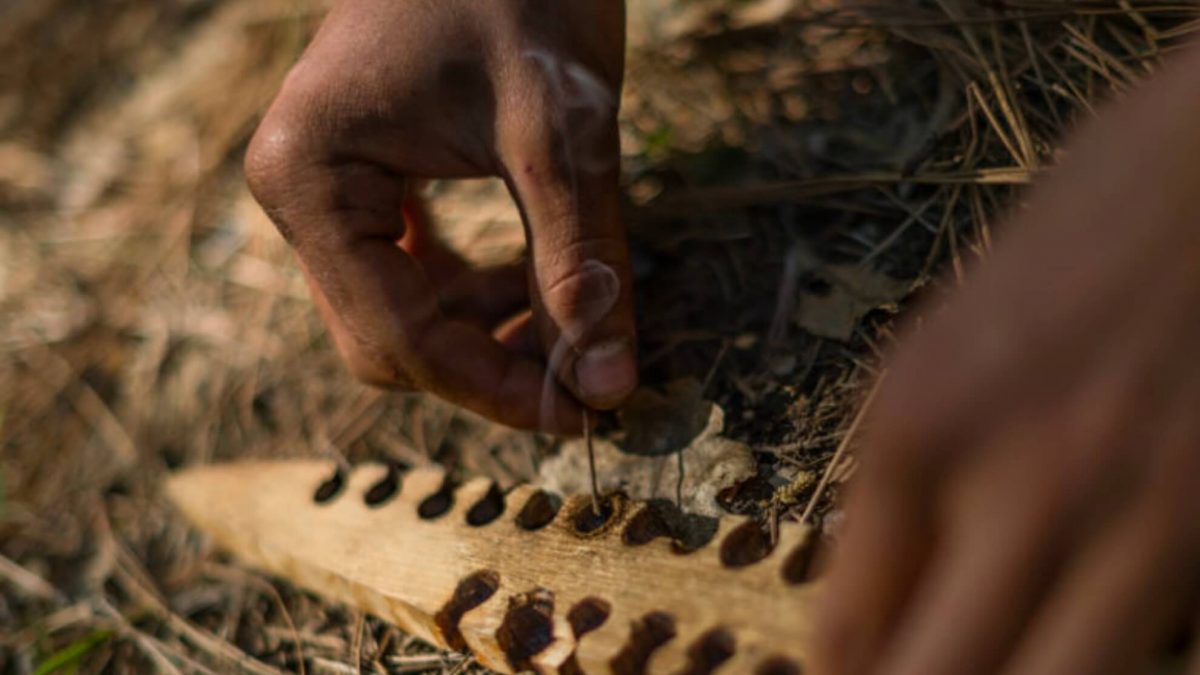Learn to Make Fire
{A Written Practice}
Learn to Make Fire
Like many survival skills, many in the modern world don't know how to do this. Yet survival skills keep us calm, because we learn confidence knowing we can cope with a difficult situation.
They are called survival skills beacuse they give us confidence. The ability to make shelter, purify water, find food, make fire. If we can take care of ourselves in this way it is an antidote to panic. If you know that you can do all these things, the grocery store can run out of food without you freaking out.
What we are talking about here is making fire in the old way. The way that requires no lighter fluid, no matches. There is an art to making fire, which is about relationship. These are called the arts of life. They are survival skills, and they are about a relationship with something elemental. The bushmen, our ancestors, those living the old ways, they carry the fire with them, from place to place. The fire is the heart of the village. In the old way, in the morning, they wrap the ember up in something, and carry it to the next place. To be able to make the fire is to be able to spark the village into being. John Stokes, our Nature and Culture curator and founder of The Tracking Project, teaches fire-making. They teach how to make and use a hand-drill. The image at left is a picture of the wood used for this.
You need little more than a stick, a piece of notched wood (at left), and something to combust. A fire made in this way is a ceremony. It is a fire that comes from friction, the spinning of a stick rubbing against a grooved piece of wood. To make a fire in this way, even to witness the making of fire in this way is to peer back into deep time–the ancestry of us all. The sound of the stick turning, the catch of the spark into a ball of fluff, the spread of a flame through kindling, the crackle of wood–these are elemental sounds that tie us back to our beginnings, back to our tribes, back to the timeless. Humanity can be described in many ways–hybrids of angels and apes, the monkeys who developed language... But another one of these primal namings is that we are the animals that learned to harness fire. As Louie Prima sings as the ape King Louie in The Jungle Book, Give me the power/ of man’s red flower / and then I’ll be like you…
Related Practices:
Relating to other Arts of Life, and Survival Skills. See campfires, Flyfishing, Foraging. Because it teaches us how to cope with difficult situations, it is also related other practices that calm anxiety. It is connected to Using Your Hands. As well as elemental practices, such as Rock Your World.Photography: Stein Egil Liland | Licensed from Pexels.com, used with permission.


